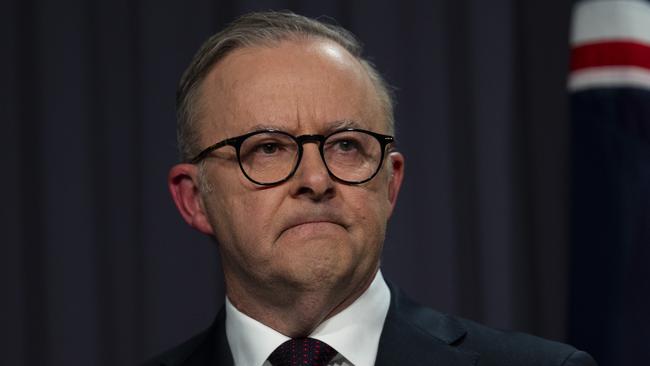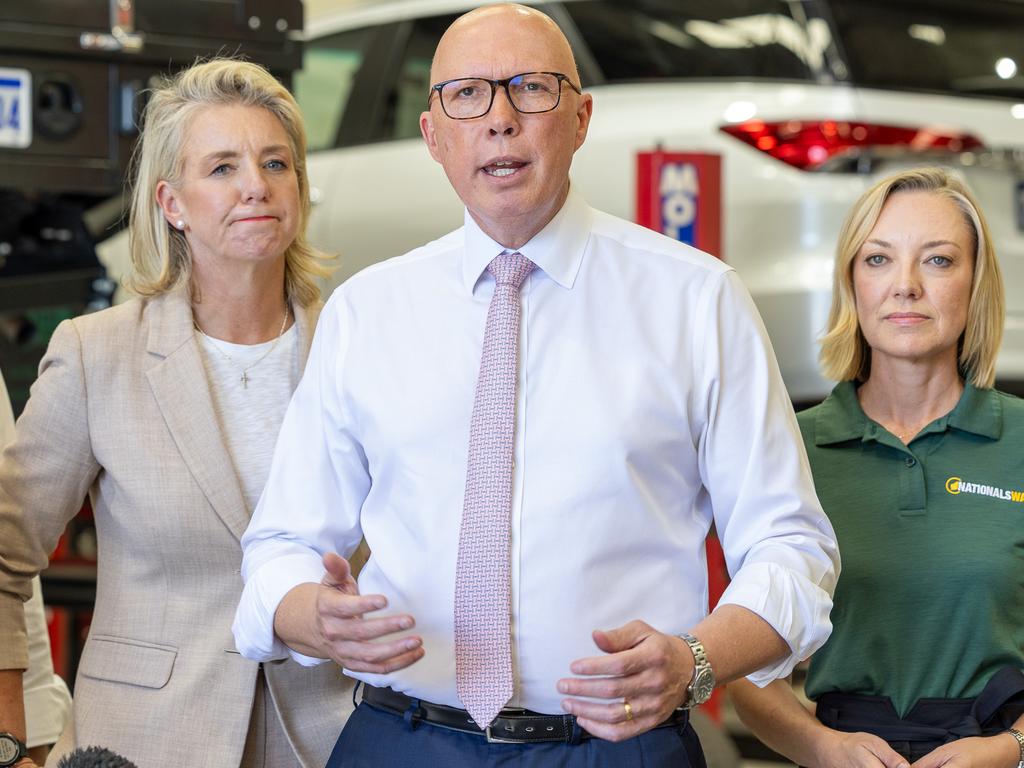Why Indigenous Australia is not longer front and centre
Anthony Albanese’s first words on election night 2022 placed Indigenous people front and centre of the new Labor government. Three years later, they rated virtually no mention.

What a difference three years makes.
Anthony Albanese’s first words from the lectern on election night 2022 placed Indigenous people front and centre of the new Labor government. He told us in emotional strains that he was taking us to a referendum. He committed to the Uluru Statement from the Heart in full – a voice, a treaty, truth-telling.
If not for a perfunctory acknowledgement of elders at the beginning of his speech on Sunday, there would have been no mention of Aboriginal and Torres Strait Islander people at all in the Prime Minister’s address to the ALP campaign launch in Perth.
Indigenous Australia is absent from a landmark speech about how Labor intends to run the country for the next three years.
Across the country, Peter Dutton spoke sparingly of Indigenous issues, and mainly to skewer Labor. He knocked the failed voice referendum and said Albanese had not shown leadership during the crisis in Alice Springs.

Dutton in his speech at least mentioned Indigenous Australia and offered some policy direction, though historians of Indigenous policy may not have found this reassuring. The Opposition Leader spoke of “practical actions that improve Indigenous lives”.
The problem is that every single Australian prime minister has said they are about practical measures in Indigenous affairs since John Howard coined the phrase practical reconciliation.
How are those practical measures going? Not well, according to Closing the Gap data since 2008. There have been two more depressing updates to Closing the Gap data since the voice referendum defeat and a withering productivity commission report. The PC report last July spelled out how the status quo in Indigenous affairs is guaranteed when governments do not listen to the communities they are governing. It’s pretty obvious stuff, and it is true outside Indigenous affairs.
We know there are things happening in Indigenous affairs under Labor.
The post-voice minister Malarndirri McCarthy is fixing the remote work-for-the-dole scheme.
However, Albanese took such a battering over the voice he appears to have taken the view that talking about Indigenous policy only benefits the Coalition.






To join the conversation, please log in. Don't have an account? Register
Join the conversation, you are commenting as Logout